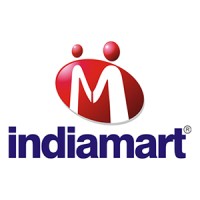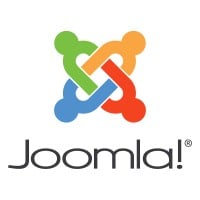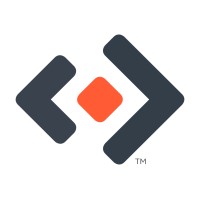
Cash App Company Cyber Security Posture
cash.appIt all started with an idea at Block in 2013. Initially built to take the pain out of peer-to-peer payments, Cash App has gone from a simple product with a single purpose to a dynamic ecosystem, developing unique financial products, including Afterpay, to provide a better way to send, spend, invest, borrow and save to our 50+ million monthly active customers. We want to redefine the world’s relationship with money to make it more relatable, instantly available, and universally accessible. This is our mission, and it’s why working at Cash App means so much more than a job. Today, Cash App has thousands of employees working globally across office and remote locations, with a culture geared toward innovation, collaboration and impact. We’ve been a distributed team since day one, and many of our roles can be done remotely from the countries where Cash App operates. No matter the location, we tailor our experience to ensure our employees are creative, productive, and happy.
Cash App Company Details
cash-app
4152 employees
281514.0
none
Technology, Information and Internet
cash.app
Scan still pending
CAS_2682181
In-progress
Between 200 and 800
This score is AI-generated and less favored by cyber insurers, who prefer the TPRM score.
 Cash App Global Score
Cash App Global Score.png)

Cash App Company Scoring based on AI Models
| Model Name | Date | Description | Current Score Difference | Score |
|---|---|---|---|---|
| AVERAGE-Industry | 03-12-2025 | This score represents the average cybersecurity rating of companies already scanned within the same industry. It provides a benchmark to compare an individual company's security posture against its industry peers. | N/A | Between 200 and 800 |
Cash App Company Cyber Security News & History
| Entity | Type | Severity | Impact | Seen | Url ID | Details | View |
|---|---|---|---|---|---|---|---|
| Cash App | Breach | 90 | 4 | 04/2022 | CAS16326422 | Link | |
Rankiteo Explanation : Attack with significant impact with customers data leaksDescription: The customer data of about 8.2 million past and present customers of the Cash App was compromised in a data breach incident by a former employee recently. The compromised data included brokerage portfolio values and account numbers, Social Security numbers, birthdays, payment card info, and most other personal information of the customers. The company immediately took action and blocked the employee's access and informed the targeted customers to be alerted. | |||||||
| Block | Breach | 80 | 4 | 12/2021 | BLO0391622 | Link | |
Rankiteo Explanation : Attack with significant impact with customers data leaksDescription: A former employee of Block formerly known as Square downloaded reports from its Cash App containing some U.S. customer information. The report contained the information regarding the users’ full names and brokerage account numbers, brokerage portfolio value, brokerage portfolio holdings, and stock trading activity for one trading day. The employee always had regular access to these reports as part of their past job responsibilities but these reports were accessed without permission after their employment ended. The company immediately launched an investigation to know the extent of the breach. | |||||||
| Cash App | Cyber Attack | N/A | 12/2021 | CAS313050624 | Link | ||
Rankiteo Explanation : N/ADescription: In December 2021, Block, Inc. disclosed a cybersecurity incident involving its subsidiary company, Cash App. A former employee exploited insider access to download internal reports, impacting more than 8 million former and current Cash App Investing customers. Despite the breach, the company assured that no personally identifiable information, such as usernames, passwords, or Social Security Numbers, was compromised in the incident. This insider data theft underscores the significant risks associated with insider threats and highlights the necessity for stringent data access controls and monitoring. | |||||||
Cash App Company Subsidiaries

It all started with an idea at Block in 2013. Initially built to take the pain out of peer-to-peer payments, Cash App has gone from a simple product with a single purpose to a dynamic ecosystem, developing unique financial products, including Afterpay, to provide a better way to send, spend, invest, borrow and save to our 50+ million monthly active customers. We want to redefine the world’s relationship with money to make it more relatable, instantly available, and universally accessible. This is our mission, and it’s why working at Cash App means so much more than a job. Today, Cash App has thousands of employees working globally across office and remote locations, with a culture geared toward innovation, collaboration and impact. We’ve been a distributed team since day one, and many of our roles can be done remotely from the countries where Cash App operates. No matter the location, we tailor our experience to ensure our employees are creative, productive, and happy.
Access Data Using Our API

Get company history
.png)
Cash App Cyber Security News
Block to Pay Cash App Users Up to $2,500 in Data Breach Settlement
Cash App users may be eligible for part of a $15M settlement of a suit claiming the company had failed to protect against data breaches.
Don't Let Your Cash App Get Hacked. Cybersecurity Expert Tips to Safeguard Your Money
To prevent hackers from trying to withdraw money from your account or request money from your friends and family, you can create a security lock ...
CashApp owner to pay $175M over cybersecurity, customer service issues
As part of the settlement, CashApp agreed to pay up to $120 million in refunds to affected consumers and a $55 million civil money penalty. The ...
United Nations ratifies UF-created framework to protect people on cash apps
UF cybersecurity professor Kevin Butler developed the framework, which spells out guidance for countries to prevent fraud and abuse on mobile ...
CFPB fines Block up to $175m over Cash App's lax fraud controls
CFPB fines Block up to $175m over Cash App's lax fraud controls · The company tried to avoid helping customers with fraudulent charges.
How to collect your share of a $15 million Cash App settlement
The $15 million settlement involves Cash App customers who had unauthorized or fraudulent transactions from August 23, 2018, to August 20, 2024.
Cybersecurity Blind Spots: 7 Ways Hackers Steal Your Money
Cybercriminals are targeting everyday consumers with increasingly sophisticated scams. Stay alert and watch your accounts closely.
PayPal Fined $2M Over Cybersecurity Lapses: What You Need to Know
New York State's Department of Financial Services (DFS) has fined PayPal $2 million for failing to comply with its cybersecurity regulations.
18 Facebook Scams and How Cybersecurity Experts Spot Them
Phishing scams. If you receive a direct message or email from Facebook saying your account is being disabled, take a close look at the sender.

Cash App Similar Companies

IndiaMART InterMESH Limited
IndiaMART is India's largest online B2B marketplace, connecting buyers with suppliers across a wide array of industries. IndiaMART provides a platform for Small & Medium Enterprises (SMEs), large enterprises, and individual buyers, helping them access diverse portfolios of quality products. Since

YouTube
YouTube is a team-oriented, creative workplace where every single employee has a voice in the choices we make and the features we implement. We work together in small teams to design, develop, and roll out key features and products in very short time frames. Which means something you write today cou

Joomla!
Joomla, The CMS Trusted By Millions for their Websites Joomla is an award-winning content management system (CMS), which enables you to build Web sites and powerful online applications. Joomla is the mobile-ready and user-friendly way to build your website. Choose from thousands of features and d

Cimpress
Cimpress plc (Nasdaq: CMPR) invests in and builds customer-focused, entrepreneurial, mass-customization businesses for the long term. Mass customization is a competitive strategy which seeks to produce goods and services to meet individual customer needs with near mass production efficiency. Cimpr

SLB
We are a technology company that unlocks access to energy for the benefit of all. As innovators, that’s been our mission for nearly a century. Today, we face a global imperative to create a future with more energy, but less carbon. Our diverse, innovative change makers are focused on going further i

Times Internet
At Times Internet, we create premium digital products that simplify and enhance the lives of millions. As India’s largest digital products company, we have a significant presence across a wide range of categories, including News, Sports, Fintech, and Enterprise solutions. Our portfolio features mar

Frequently Asked Questions (FAQ) on Cybersecurity Incidents
Cash App CyberSecurity History Information
Total Incidents: According to Rankiteo, Cash App has faced 3 incidents in the past.
Incident Types: The types of cybersecurity incidents that have occurred include ['Breach', 'Cyber Attack'].
Total Financial Loss: The total financial loss from these incidents is estimated to be {total_financial_loss}.
Cybersecurity Posture: The company's overall cybersecurity posture is described as It all started with an idea at Block in 2013. Initially built to take the pain out of peer-to-peer payments, Cash App has gone from a simple product with a single purpose to a dynamic ecosystem, developing unique financial products, including Afterpay, to provide a better way to send, spend, invest, borrow and save to our 50+ million monthly active customers. We want to redefine the world’s relationship with money to make it more relatable, instantly available, and universally accessible. This is our mission, and it’s why working at Cash App means so much more than a job. Today, Cash App has thousands of employees working globally across office and remote locations, with a culture geared toward innovation, collaboration and impact. We’ve been a distributed team since day one, and many of our roles can be done remotely from the countries where Cash App operates. No matter the location, we tailor our experience to ensure our employees are creative, productive, and happy..
Detection and Response: The company detects and responds to cybersecurity incidents through {description_of_detection_and_response_process}.
Incident Details
Incident 1: Ransomware Attack
Title: {Incident_Title}
Description: {Brief_description_of_the_incident}
Date Detected: {Detection_Date}
Date Publicly Disclosed: {Disclosure_Date}
Date Resolved: {Resolution_Date}
Type: {Type_of_Attack}
Attack Vector: {Attack_Vector}
Vulnerability Exploited: {Vulnerability}
Threat Actor: {Threat_Actor}
Motivation: {Motivation}
Incident 2: Data Breach
Title: {Incident_Title}
Description: {Brief_description_of_the_incident}
Date Detected: {Detection_Date}
Date Publicly Disclosed: {Disclosure_Date}
Date Resolved: {Resolution_Date}
Type: {Type_of_Attack}
Attack Vector: {Attack_Vector}
Vulnerability Exploited: {Vulnerability}
Threat Actor: {Threat_Actor}
Motivation: {Motivation}
Common Attack Types: The most common types of attacks the company has faced are ['Breach'].
Identification of Attack Vectors: The company identifies the attack vectors used in incidents through {description_of_identification_process}.
Impact of the Incidents
Incident 1: Ransomware Attack
Financial Loss: {Financial_Loss}
Data Compromised: {Data_Compromised}
Systems Affected: {Systems_Affected}
Downtime: {Downtime}
Operational Impact: {Operational_Impact}
Conversion Rate Impact: {Conversion_Rate_Impact}
Revenue Loss: {Revenue_Loss}
Customer Complaints: {Customer_Complaints}
Brand Reputation Impact: {Brand_Reputation_Impact}
Legal Liabilities: {Legal_Liabilities}
Identity Theft Risk: {Identity_Theft_Risk}
Payment Information Risk: {Payment_Information_Risk}
Incident 2: Data Breach
Financial Loss: {Financial_Loss}
Data Compromised: {Data_Compromised}
Systems Affected: {Systems_Affected}
Downtime: {Downtime}
Operational Impact: {Operational_Impact}
Conversion Rate Impact: {Conversion_Rate_Impact}
Revenue Loss: {Revenue_Loss}
Customer Complaints: {Customer_Complaints}
Brand Reputation Impact: {Brand_Reputation_Impact}
Legal Liabilities: {Legal_Liabilities}
Identity Theft Risk: {Identity_Theft_Risk}
Payment Information Risk: {Payment_Information_Risk}
Average Financial Loss: The average financial loss per incident is {average_financial_loss}.
Commonly Compromised Data Types: The types of data most commonly compromised in incidents are {list_of_commonly_compromised_data_types}.
Incident 1: Ransomware Attack
Entity Name: {Entity_Name}
Entity Type: {Entity_Type}
Industry: {Industry}
Location: {Location}
Size: {Size}
Customers Affected: {Customers_Affected}
Incident 2: Data Breach
Entity Name: {Entity_Name}
Entity Type: {Entity_Type}
Industry: {Industry}
Location: {Location}
Size: {Size}
Customers Affected: {Customers_Affected}
Response to the Incidents
Incident 1: Ransomware Attack
Incident Response Plan Activated: {Yes/No}
Third Party Assistance: {Yes/No}
Law Enforcement Notified: {Yes/No}
Containment Measures: {Containment_Measures}
Remediation Measures: {Remediation_Measures}
Recovery Measures: {Recovery_Measures}
Communication Strategy: {Communication_Strategy}
Adaptive Behavioral WAF: {Adaptive_Behavioral_WAF}
On-Demand Scrubbing Services: {On_Demand_Scrubbing_Services}
Network Segmentation: {Network_Segmentation}
Enhanced Monitoring: {Enhanced_Monitoring}
Incident 2: Data Breach
Incident Response Plan Activated: {Yes/No}
Third Party Assistance: {Yes/No}
Law Enforcement Notified: {Yes/No}
Containment Measures: {Containment_Measures}
Remediation Measures: {Remediation_Measures}
Recovery Measures: {Recovery_Measures}
Communication Strategy: {Communication_Strategy}
Adaptive Behavioral WAF: {Adaptive_Behavioral_WAF}
On-Demand Scrubbing Services: {On_Demand_Scrubbing_Services}
Network Segmentation: {Network_Segmentation}
Enhanced Monitoring: {Enhanced_Monitoring}
Incident Response Plan: The company's incident response plan is described as {description_of_incident_response_plan}.
Third-Party Assistance: The company involves third-party assistance in incident response through {description_of_third_party_involvement}.
Data Breach Information
Incident 2: Data Breach
Type of Data Compromised: {Type_of_Data}
Number of Records Exposed: {Number_of_Records}
Sensitivity of Data: {Sensitivity_of_Data}
Data Exfiltration: {Yes/No}
Data Encryption: {Yes/No}
File Types Exposed: {File_Types}
Personally Identifiable Information: {Yes/No}
Prevention of Data Exfiltration: The company takes the following measures to prevent data exfiltration: {description_of_prevention_measures}.
Handling of PII Incidents: The company handles incidents involving personally identifiable information (PII) through {description_of_handling_process}.
Ransomware Information
Incident 1: Ransomware Attack
Ransom Demanded: {Ransom_Amount}
Ransom Paid: {Ransom_Paid}
Ransomware Strain: {Ransomware_Strain}
Data Encryption: {Yes/No}
Data Exfiltration: {Yes/No}
Ransom Payment Policy: The company's policy on paying ransoms in ransomware incidents is described as {description_of_ransom_payment_policy}.
Data Recovery from Ransomware: The company recovers data encrypted by ransomware through {description_of_data_recovery_process}.
Regulatory Compliance
Incident 1: Ransomware Attack
Regulations Violated: {Regulations_Violated}
Fines Imposed: {Fines_Imposed}
Legal Actions: {Legal_Actions}
Regulatory Notifications: {Regulatory_Notifications}
Incident 2: Data Breach
Regulations Violated: {Regulations_Violated}
Fines Imposed: {Fines_Imposed}
Legal Actions: {Legal_Actions}
Regulatory Notifications: {Regulatory_Notifications}
Regulatory Frameworks: The company complies with the following regulatory frameworks regarding cybersecurity: {list_of_regulatory_frameworks}.
Ensuring Regulatory Compliance: The company ensures compliance with regulatory requirements through {description_of_compliance_measures}.
Lessons Learned and Recommendations
Incident 1: Ransomware Attack
Lessons Learned: {Lessons_Learned}
Incident 2: Data Breach
Lessons Learned: {Lessons_Learned}
Incident 1: Ransomware Attack
Recommendations: {Recommendations}
Incident 2: Data Breach
Recommendations: {Recommendations}
Key Lessons Learned: The key lessons learned from past incidents are {list_of_key_lessons_learned}.
Implemented Recommendations: The company has implemented the following recommendations to improve cybersecurity: {list_of_implemented_recommendations}.
References
Additional Resources: Stakeholders can find additional resources on cybersecurity best practices at {list_of_additional_resources}.
Investigation Status
Incident 1: Ransomware Attack
Investigation Status: {Investigation_Status}
Incident 2: Data Breach
Investigation Status: {Investigation_Status}
Communication of Investigation Status: The company communicates the status of incident investigations to stakeholders through {description_of_communication_process}.
Stakeholder and Customer Advisories
Incident 1: Ransomware Attack
Stakeholder Advisories: {Stakeholder_Advisories}
Customer Advisories: {Customer_Advisories}
Incident 2: Data Breach
Stakeholder Advisories: {Stakeholder_Advisories}
Customer Advisories: {Customer_Advisories}
Advisories Provided: The company provides the following advisories to stakeholders and customers following an incident: {description_of_advisories_provided}.
Initial Access Broker
Incident 1: Ransomware Attack
Entry Point: {Entry_Point}
Reconnaissance Period: {Reconnaissance_Period}
Backdoors Established: {Backdoors_Established}
High Value Targets: {High_Value_Targets}
Data Sold on Dark Web: {Yes/No}
Incident 2: Data Breach
Entry Point: {Entry_Point}
Reconnaissance Period: {Reconnaissance_Period}
Backdoors Established: {Backdoors_Established}
High Value Targets: {High_Value_Targets}
Data Sold on Dark Web: {Yes/No}
Monitoring and Mitigation of Initial Access Brokers: The company monitors and mitigates the activities of initial access brokers through {description_of_monitoring_and_mitigation_measures}.
Post-Incident Analysis
Incident 1: Ransomware Attack
Root Causes: {Root_Causes}
Corrective Actions: {Corrective_Actions}
Incident 2: Data Breach
Root Causes: {Root_Causes}
Corrective Actions: {Corrective_Actions}
Post-Incident Analysis Process: The company's process for conducting post-incident analysis is described as {description_of_post_incident_analysis_process}.
Corrective Actions Taken: The company has taken the following corrective actions based on post-incident analysis: {list_of_corrective_actions_taken}.
Additional Questions
General Information
Ransom Payment History: The company has {paid/not_paid} ransoms in the past.
Last Ransom Demanded: The amount of the last ransom demanded was {last_ransom_amount}.
Last Attacking Group: The attacking group in the last incident was {last_attacking_group}.
Incident Details
Most Recent Incident Detected: The most recent incident detected was on {most_recent_incident_detected_date}.
Most Recent Incident Publicly Disclosed: The most recent incident publicly disclosed was on {most_recent_incident_publicly_disclosed_date}.
Most Recent Incident Resolved: The most recent incident resolved was on {most_recent_incident_resolved_date}.
Impact of the Incidents
Highest Financial Loss: The highest financial loss from an incident was {highest_financial_loss}.
Most Significant Data Compromised: The most significant data compromised in an incident was {most_significant_data_compromised}.
Most Significant System Affected: The most significant system affected in an incident was {most_significant_system_affected}.
Response to the Incidents
Third-Party Assistance in Most Recent Incident: The third-party assistance involved in the most recent incident was {third_party_assistance_in_most_recent_incident}.
Containment Measures in Most Recent Incident: The containment measures taken in the most recent incident were {containment_measures_in_most_recent_incident}.
Data Breach Information
Most Sensitive Data Compromised: The most sensitive data compromised in a breach was {most_sensitive_data_compromised}.
Number of Records Exposed: The number of records exposed in the most significant breach was {number_of_records_exposed}.
Ransomware Information
Highest Ransom Demanded: The highest ransom demanded in a ransomware incident was {highest_ransom_demanded}.
Highest Ransom Paid: The highest ransom paid in a ransomware incident was {highest_ransom_paid}.
Regulatory Compliance
Highest Fine Imposed: The highest fine imposed for a regulatory violation was {highest_fine_imposed}.
Most Significant Legal Action: The most significant legal action taken for a regulatory violation was {most_significant_legal_action}.
Lessons Learned and Recommendations
Most Significant Lesson Learned: The most significant lesson learned from past incidents was {most_significant_lesson_learned}.
Most Significant Recommendation Implemented: The most significant recommendation implemented to improve cybersecurity was {most_significant_recommendation_implemented}.
References
Most Recent Source: The most recent source of information about an incident is {most_recent_source}.
Most Recent URL for Additional Resources: The most recent URL for additional resources on cybersecurity best practices is {most_recent_url}.
Investigation Status
Current Status of Most Recent Investigation: The current status of the most recent investigation is {current_status_of_most_recent_investigation}.
Stakeholder and Customer Advisories
Most Recent Stakeholder Advisory: The most recent stakeholder advisory issued was {most_recent_stakeholder_advisory}.
Most Recent Customer Advisory: The most recent customer advisory issued was {most_recent_customer_advisory}.
Initial Access Broker
Most Recent Entry Point: The most recent entry point used by an initial access broker was {most_recent_entry_point}.
Most Recent Reconnaissance Period: The most recent reconnaissance period for an incident was {most_recent_reconnaissance_period}.
Post-Incident Analysis
Most Significant Root Cause: The most significant root cause identified in post-incident analysis was {most_significant_root_cause}.
Most Significant Corrective Action: The most significant corrective action taken based on post-incident analysis was {most_significant_corrective_action}.
What Do We Measure?
















Every week, Rankiteo analyzes billions of signals to give organizations a sharper, faster view of emerging risks. With deeper, more actionable intelligence at their fingertips, security teams can outpace threat actors, respond instantly to Zero-Day attacks, and dramatically shrink their risk exposure window.
These are some of the factors we use to calculate the overall score:
Identify exposed access points, detect misconfigured SSL certificates, and uncover vulnerabilities across the network infrastructure.
Gain visibility into the software components used within an organization to detect vulnerabilities, manage risk, and ensure supply chain security.
Monitor and manage all IT assets and their configurations to ensure accurate, real-time visibility across the company's technology environment.
Leverage real-time insights on active threats, malware campaigns, and emerging vulnerabilities to proactively defend against evolving cyberattacks.




